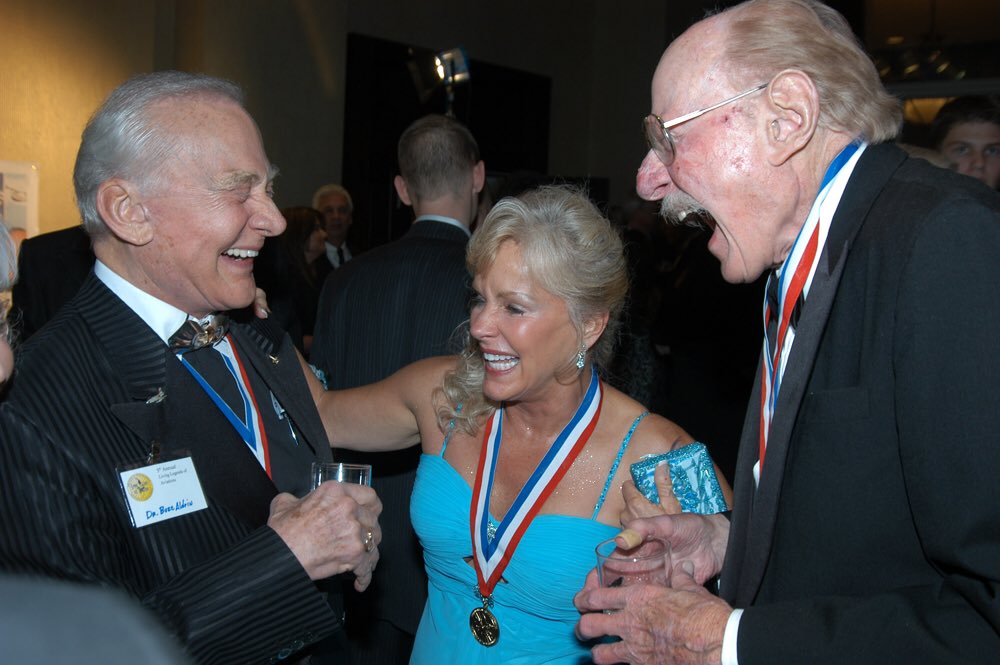Bob Hoover is known by many as the greatest pilot of all time. Among countless other feats, he witnessed Chuck Yeager break the sound barrier for the first time, spent 16 months as a POW during World War II, spent time with Orville Wright and Neil Armstrong, and coached the pilot of a P-51 with broken landing gear down safely via telephone.
Bob Hoover was a true aviation legend in every sense of the word. After World War II, Hoover served as a legendary U.S. Air Force test pilot, flying as a backup pilot for Chuck Yeager during the supersonic flight test project and testing some of the world’s first fighter jets. He was well-known in the aviation world for his revolutionary aerobatic flying, including a stunt that he regularly performed with both engines off in an Aero Commander that was never intended for stunts, much less stunts with no engine power.
Arguably his most impressive feat was escaping from a French POW camp by stealing a Nazi fighter plane. During World War II, Hoover was shot down over Nice, France, where he spent 16 months as a prisoner of war. After more than 20 escape attempts, each of which landed him in solitary confinement, he was finally able to commandeer a German fighter plane and escape through the skies, despite the likelihood of an Allied attack on what they would no doubt presume was an enemy aircraft.
Just a few months ago, Hoover downplayed the story to a crowd of more than 1,000, reported by EAA.
Hoover said he did not consider his actions in escaping to be heroic. “I was no hero. I didn’t do anything but be stupid,” he chuckled. Hoover said, “It’s a stupid story. For about a year and a half I wouldn’t tell anyone that story.” But word got out years later at an airshow, and Hoover acknowledged his feat, albeit with disarming self-criticism.
The FAA ruffled lots of feathers in the aviation community in the early 90s, when they revoked Hoover’s medical certificate after he experienced engine problems at an airshow, leading FAA inspectors to believe he had performed poorly. Hoover flew another 33 airshows before the FAA inspectors’ findings were reported, and the FAA revoked his medical certificate despite an FAA-appointed doctor’s recommendation that he keep it. Years later, the FAA returned Hoover’s medical certificate with no explanation. Shortly after the incident, AOPA member and U.S. Senator James Inhofe introduced a bill allowing pilots to immediately appeal FAA emergency certificate revocations.
During his military career, Hoover was awarded the Distinguished Flying Cross, Soldier’s Medal for non-combat valor, Air Medal, Purple Heart and the French Croix de Guerre. He was also made an honorary member of the Blue Angels, Thunderbirds, RCAF Snowbirds, American Fighter Aces Association, the original Eagle Squadron, and was inducted into the National Aviation Hall of Fame.
Hoover passed away the morning of October 25th at age 94.
[ulp id=’VABdJLsvmw27IMUj’]

